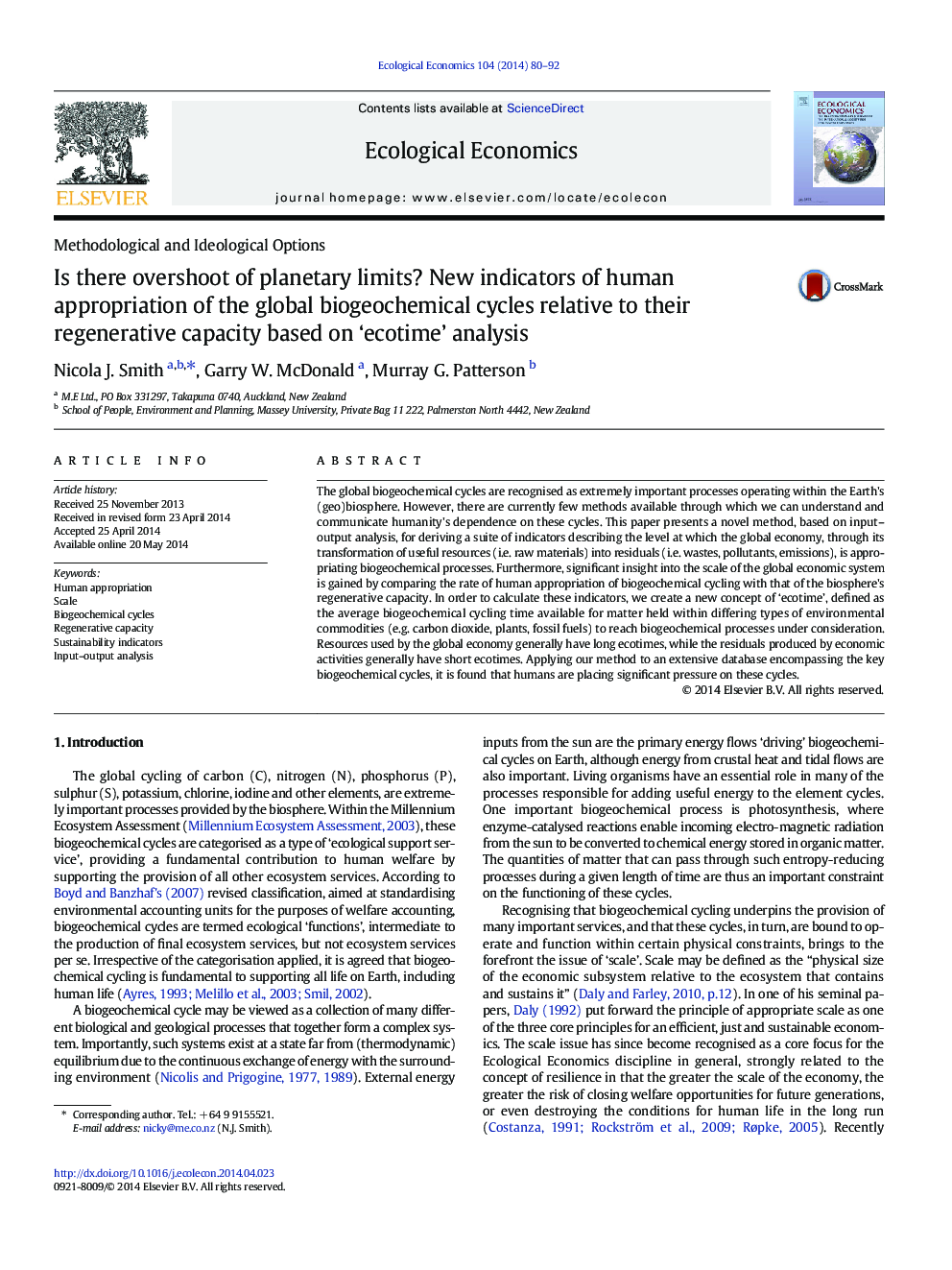| کد مقاله | کد نشریه | سال انتشار | مقاله انگلیسی | نسخه تمام متن |
|---|---|---|---|---|
| 5049559 | 1476375 | 2014 | 13 صفحه PDF | دانلود رایگان |

- We present a method for calculating the relative biogeochemical cycling (BGC) 'value' of commodities.
- The method uses a concept of 'ecotime', the relative BGC time available for a commodity.
- We can determine the ecotime consumed by the global economy in turning resources into wastes.
- Also, current demands for ecotime can be compared against the available supply.
- The economy is clearly in overshoot of many BGC processes, esp. in the carbon cycle.
The global biogeochemical cycles are recognised as extremely important processes operating within the Earth's (geo)biosphere. However, there are currently few methods available through which we can understand and communicate humanity's dependence on these cycles. This paper presents a novel method, based on input-output analysis, for deriving a suite of indicators describing the level at which the global economy, through its transformation of useful resources (i.e. raw materials) into residuals (i.e. wastes, pollutants, emissions), is appropriating biogeochemical processes. Furthermore, significant insight into the scale of the global economic system is gained by comparing the rate of human appropriation of biogeochemical cycling with that of the biosphere's regenerative capacity. In order to calculate these indicators, we create a new concept of 'ecotime', defined as the average biogeochemical cycling time available for matter held within differing types of environmental commodities (e.g. carbon dioxide, plants, fossil fuels) to reach biogeochemical processes under consideration. Resources used by the global economy generally have long ecotimes, while the residuals produced by economic activities generally have short ecotimes. Applying our method to an extensive database encompassing the key biogeochemical cycles, it is found that humans are placing significant pressure on these cycles.
Journal: Ecological Economics - Volume 104, August 2014, Pages 80-92